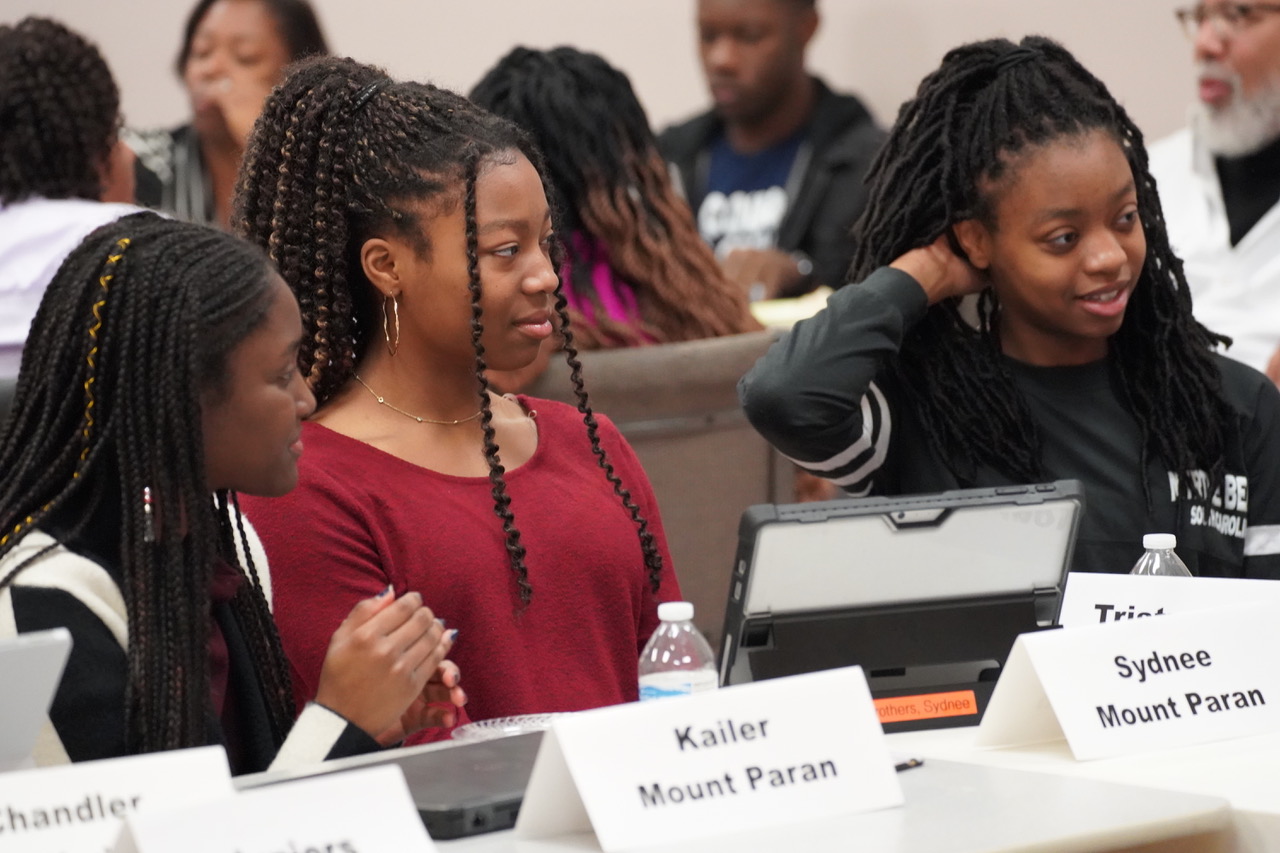Our College Planning System
A Systematic Approach to College Planning
K – 12 Achievement Expands College Access
Long prior to providing comprehensive and personalized college planning guidance to students and families, Mychal Wynn was as an educational consultant providing staff development for schools and school districts throughout the United States and Bermuda. In 2002, his ground breaking book, “Increasing Student Achievement: A Guide to School Improvement Planning” provided a research-based framework for increasing K – 12 student success and expanding postsecondary pathways.
For over two decades, I have been working with schools. I have worked with parents, teachers, principals, superintendents, and students in every school setting (i.e., preschool, elementary, middle, high, alternative schools, juvenile court schools, and community colleges) and I personally witnessed what rings clear in the Texas Successful School-wide Research Study, ‘There is no magic cure for increasing student achievement.’ However, the research is clear and the anecdotal evidence is overwhelming: ‘If you can successfully cultivate a socially supportive, emotionally nurturing, and intellectually stimulating school climate and culture, you can engage children in rigorous academic instruction and practical learning outcomes that will transform a school community into a place of passion and purpose.’ As a parent, I want all schools to work for all children as passionately as I want my children’s schools to work for them. [Increasing Student Achievement, p. vii]
Despite receiving hands-on training and step-by-step guidance, far too many schools were failing to foster positive school climates and cultures, build relationships with students and families, or expand postsecondary access for students from marginalized communities and those who will be the first in their family to attend college. Consequently, Mr. Wynn developed a system for delivering services directly to parents and students that would expand college access in the manner in which he had trained teachers and counselors to do.
College Planning Avoids Student Loan Debt
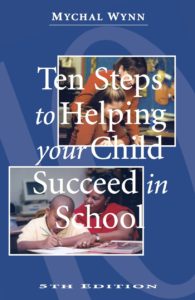 Many “College Planning” programs, in actuality, provide very little college planning guidance or college scholarship assistance. The focus of AVID, a program adopted by many school districts, is to provide college readiness skills; the focus of Naviance, an online system adopted by many school districts, is to provide career exploration, college match, and document management; the focus of Upward Bound and TRIO, government sponsored programs offered through many colleges, is to provide academic and emotional support for low-income and first generation students; and the focus of most college admissions counselors or college advisers, is to provide assistance in navigating the college admissions process.
Many “College Planning” programs, in actuality, provide very little college planning guidance or college scholarship assistance. The focus of AVID, a program adopted by many school districts, is to provide college readiness skills; the focus of Naviance, an online system adopted by many school districts, is to provide career exploration, college match, and document management; the focus of Upward Bound and TRIO, government sponsored programs offered through many colleges, is to provide academic and emotional support for low-income and first generation students; and the focus of most college admissions counselors or college advisers, is to provide assistance in navigating the college admissions process.
In a similar manner, college planning, college advising, or scholarship guidance are not core components of any of the national community based programs like the Boys and Girls Clubs of America, Jack and Jill of America, AKA Academy, Delta Gems, Kappa Alpha Psi ASA Guide Right, or the Omega Psi Phi Mentoring Program. Consequently, as a parent and educator, Mr. Wynn could not rely on such programs. Mr. Wynn, believed that “College Planning” required a comprehensive set of research-based strategies, which he was committed to developing to ensure that his children gained admission to the ‘right’ colleges and qualified for the ‘right’ scholarships—an approach that resulted in his older son being offered admission, together with a full need-based scholarship, to Amherst College; and his younger son being offered admission to Morehouse College, made affordable through his selection as a 2012 Gates Millennium Scholar.
 Mr. Wynn and his wife have proven that the strategies used for their sons can be used by any parent. However, intentional actions must be taken long prior to submitting college applications as a high school senior. The best college and scholarship outcomes are achieved by students who are guided in their “college planning” during the primary grades as they discover their gifts, talents, personality, and interests; through the middle grades as they explore colleges and careers; and during high school through their coursework, leadership, and community service. The practice of choosing the best preschools, within a college planning context, has been practiced by financially affluent families for years as noted in the article, “Inside the insanely competitive world of elite New York City preschools.” While not all families have access to elite preschools or even the best K – 12 schools, through our system, every family can can develop a comprehensive college-bound plan.
Mr. Wynn and his wife have proven that the strategies used for their sons can be used by any parent. However, intentional actions must be taken long prior to submitting college applications as a high school senior. The best college and scholarship outcomes are achieved by students who are guided in their “college planning” during the primary grades as they discover their gifts, talents, personality, and interests; through the middle grades as they explore colleges and careers; and during high school through their coursework, leadership, and community service. The practice of choosing the best preschools, within a college planning context, has been practiced by financially affluent families for years as noted in the article, “Inside the insanely competitive world of elite New York City preschools.” While not all families have access to elite preschools or even the best K – 12 schools, through our system, every family can can develop a comprehensive college-bound plan.
Research-based and Student-focused
 At the heart of our college planning system is our college planning cohort program—a research-based, research-responsive, and student-centered approach to student engagement. Our system integrates student aspirations with college preparation. Despite the many inequities in K – 12 schools and in college admissions, there are tremendous opportunities for students when provided with insight into the “hidden rules,” (also read, “The Dirty Secrets of College Admissions) an understanding of holistic admissions, and guidance in developing high quality college and scholarship application packages.
At the heart of our college planning system is our college planning cohort program—a research-based, research-responsive, and student-centered approach to student engagement. Our system integrates student aspirations with college preparation. Despite the many inequities in K – 12 schools and in college admissions, there are tremendous opportunities for students when provided with insight into the “hidden rules,” (also read, “The Dirty Secrets of College Admissions) an understanding of holistic admissions, and guidance in developing high quality college and scholarship application packages.
The Wynns have proven that expanding the college knowledge of students, particularly students from lower income families and those who will be the first in their family to attend college, can result in amazing college and scholarship outcomes. Their college planning system—a system through which students are guided in taking intentional actions throughout their K – 12 progression across the areas of academics; leadership; and service to make themselves the most competitive college and scholarship applicants possible—is the only program of its kind, one where nearly 50% of graduating seniors each year are offered a full college scholarship, over 25 times the national average of 2% (Source: Mind -blowing Scholarship Stats for 2021).
 Student Aspirations – Family’s Financial Need
Student Aspirations – Family’s Financial Need
No more should kindergarten students be taught calculus than high school seniors should begin their college planning. In the manner in which students work their way through levels of math to reach calculus in high school, students should work their way through levels of college planning to become the most competitive college and scholarship applicants as high school seniors. Based on this core belief, we begin the college planning conversation in elementary school and begin forging a 7-year middle school through high school set of strategies driven by a student’s aspirations and family’s financial need. As student aspirations and family’s financial need changes, these changes are reflected in a student’s college planning.
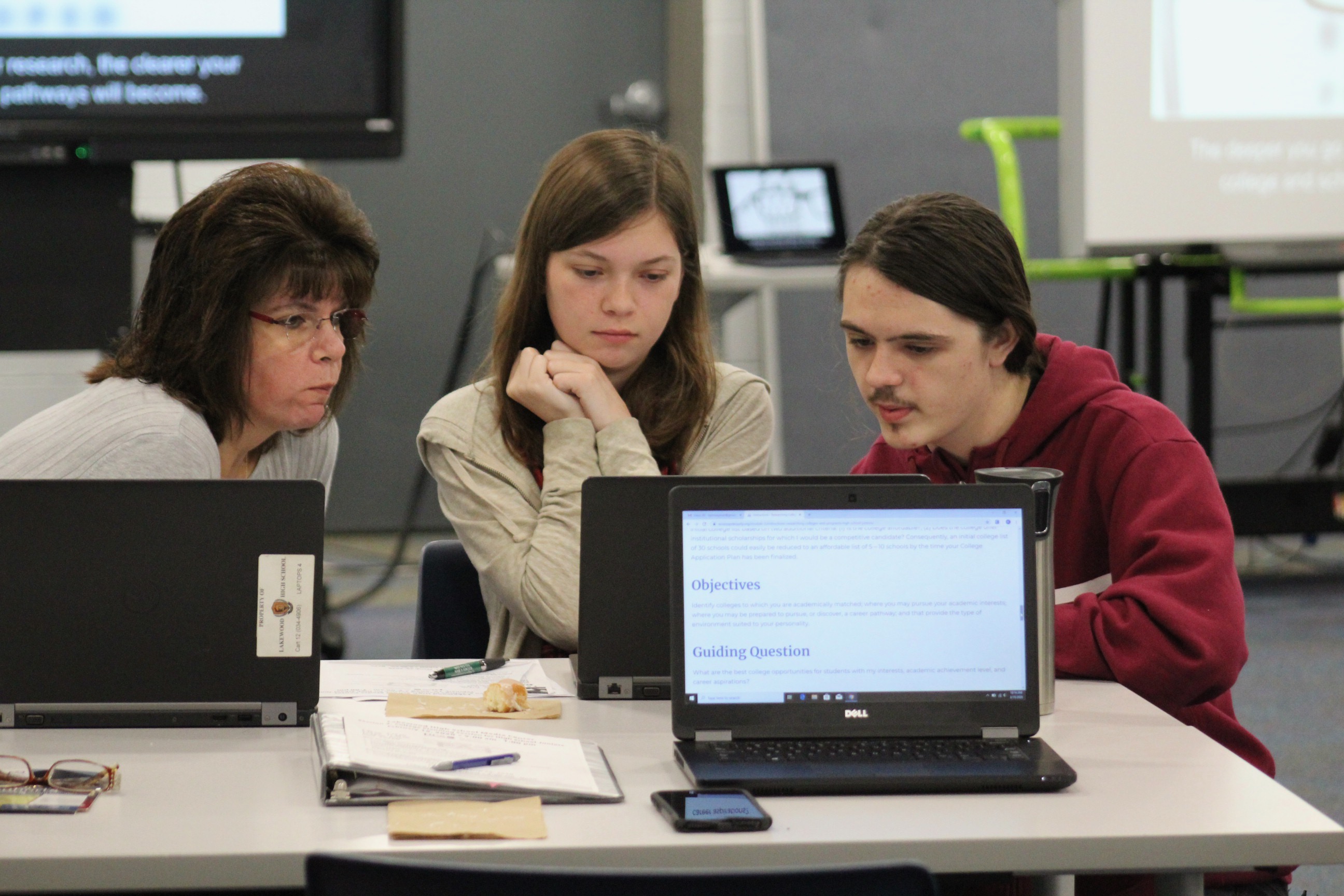 Closing the College Knowledge Gap
Closing the College Knowledge Gap
A professional athlete or a graduate of an Ivy League school has unique insight into guiding their children into professional sports or selective colleges. In the case of the athlete, this is an understanding of the “Hidden Rules” associated with professional sports. In the case of the Ivy League parent, this is an understanding of the “Hidden Rules” of college admissions. Consequently, students who are the first in their family to attend college, those from under resourced communities, first generation immigrants, students from inner city communities, students from rural communities, and students from Native American reservations, are victims of a huge college knowledge gap. We believe that closing this cap is essential to effective college planning and expanding students’ scholarship opportunities.
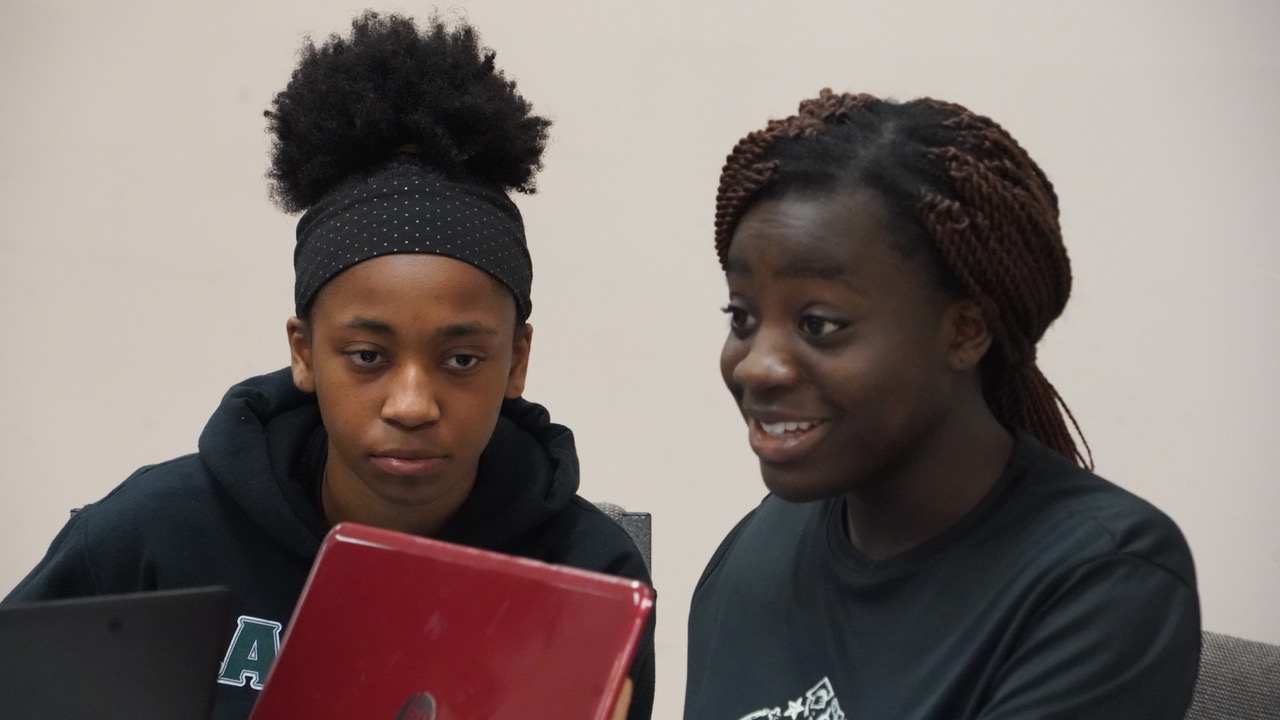 Working As A Team
Working As A Team
During the COVID-19 pandemic, as schools struggled with transitioning to online learning, we discovered the opportunity to connect students from throughout the country who were pursuing similar college and scholarship aspirations. Pictured here are two of our students from one of our last in-person sessions, who would both eventually enter college on full scholarships. Tyra (pictured on the left), would go on to become a Clark Scholar at Georgia Tech and Faith would go on to become an Odyssey Scholar at the University of Chicago and a Ron Brown Scholar. Now, as college students, Tyra and Faith, have mentored and advised students from throughout the country through our virtual sessions.
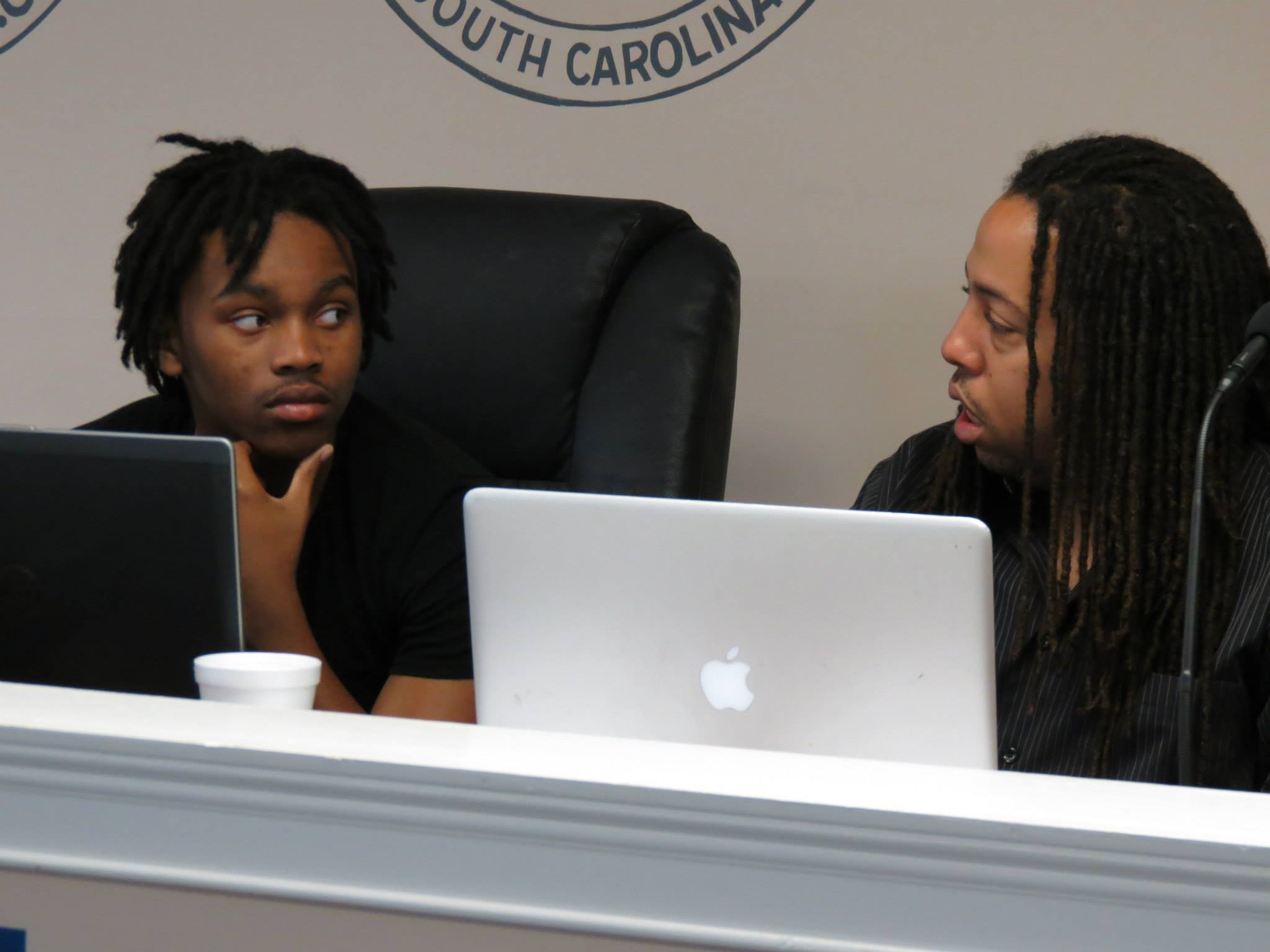 Essays Tell Your Story
Essays Tell Your Story
As more colleges become test optional and embrace holistic admissions policies, students need effective guidance in writing high quality essays through which they present past achievements, current passions, and future aspirations to colleges and scholarship providers. When applying to selective colleges and for competitive scholarships, the case that a students makes as to why they are more deserving than the thousands of other applicants is made through their essays, many of which require a process of writing and reviewing over the course of many weeks, if not months.
‘College Planning’ versus ‘College Readiness’
Nowhere is our college planning process more misunderstood than when being compared to college readiness programs. The space in which our program occupies is unique because our goals are inherently different. Schools and school districts are mandated to assist students in developing “college readiness” skills and may even do an admirable job of engaging students in college and career exploration.
While our program will certainly assist students in expanding college readiness and exploring careers, these actions are taken within the “context” of our college planning system which is focused on expanding college and scholarship outcomes. The following presentation from an 8th grade student attending our college planning boot camp for middle school students illustrates the “context” of our system. Through her presentation, the student affirms the “context” for how she will navigate through the balance of middle school and through high school.
Pictured above are triplets, all of whom went off to college at the same time, and all of whom were awarded full scholarships. Sydnee is a Dowdy Scholar at North Carolina A&T State University, Trysten is in the Honors College at Claflin University, and Kailer attends Wesleyan University. While their high school provided ‘college readiness,’ it was their participation in our program that provided the ‘college planning’ resulting in their full scholarships and saving their family tens of thousands of dollars in student and Parent PLUS loans.
Have questions?
